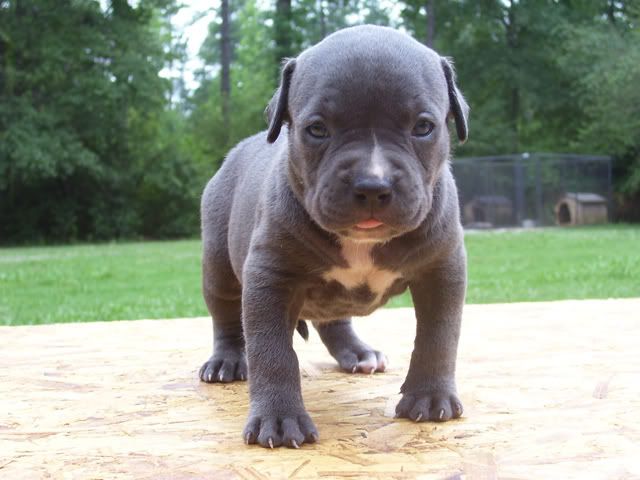

Football fans in Atlanta and round the globe mourn today because it looks like the man heralded as the NFL’s version of Michael Jordan may turn instead into the NFL’s version of Barry Bonds.
Some might have hoped Michael Vick become football’s Muhammad Ali, now an American doll shivering and beloved but once an idol of angered spirit, the defiant harlequin who years before refusing to kill his “brown brothers” across the sea announced his allegiance to the Nation of Islam to a pool of reporters in Miami following his first world title: “I don’t have to be who you want me to be.” Vick did not become a critic of his country’s wars, or even a champion. He was poised most of all to become his sport’s Allen Iverson, a corn-rowed runner-up and symbol of a generation who looked menacing but said nothing and cashed the check. The two share a common home ground, for example, the desolate Hampton Roads area of Virginia Beach. Of course such comparisons fall apart upon inspection. Happy athletes are all alike; unhappy athletes are unhappy each in their own way.
Let us suppose Vick unhappy. Yesterday a grand jury indicted the pro bowl quarterback and three of his fellows on federal criminal charges. The Richmond U.S. Attorney reports: “The defendants were involved in an ongoing animal fighting venture based out of a property located in Smithfield, Virginia, from early 2001 through on or about April 25, 2007. The property was purchased by Vick in June 2001. Since that time, the named defendants formed a dog fighting enterprise known as ‘Bad Newz Kennels’ and used the property for housing and training pit bulls used in dog fights.” Vick is a gladiator. He is an outlaw now, like Ali, and he will like Ali battle the government for his survival as an icon and as an athlete. This is so. But what of the dogs?
The crisis facing the fighting dog is the increasingly bleak wasteland of your opportunities. You live in a cage. You will be a cannibal, or get murdered. You are both condition of and condition for your condition, a fabulous beast. You are existentially a made up creature, for no reason than to see what comes of you, like a piece of fiction led in this case onto the battlefield. The fighting probably hurts to hell. But is the fighting dog unhappy? Or any less happy than a character in a book?
Lurid details reach us from the kennels:
“15. In or about the summer of 2002,” the indictment reads, “PEACE executed at least one dog that did not perform well in a ‘testing’ session at 1915 Moonlight Road by shooting the animal.
“16. In or about the summer of 2002, PHILLIPS executed at least one dog that did not perform well in a ‘testing’ session at 1915 Moonlight Road by shooting the animal.
“17. In or about the summer of 2002, TAYLOR executed at least two dogs that did not perform well in ‘testing’ sessions at 1915 Moonlight Road by shooting one dog and electrocuting the other.
“…
“83. In or about April 2007, PEACE, PHILLIPS, and VICK executed approximately 8 dogs that did not perform well in ‘testing’ sessions at 1915 Moonlight Road by various methods, including hanging, drowning, and slamming at least one dog’s body to the ground."
The grand jury’s account delivers the repetitive cadence and setting (“Moonlight Road”) of a folk song, and even its violence contributes a mood like a specially Southern fable. The dogs are doomed, but is there a difference between that and the blues? The performer, an actor on the boards, Camus tells us, is preferably a hunted soul. "This is called losing oneself to find oneself," Camus says. "In those three hours he travels the whole course of the dead-end path that the man in the audience takes a lifetime to cover.”
We are tragic creatures where the dogs are not. All domestic animals are absurd. Their motives lack the authenticity of the wild. Cattle end in illness or the slaughter, collies get put down. They are perhaps our most modern creation. Pit dogs fulfill a paradox, domesticated and yet wildly savage, that lives in the meeting of id and superego. They are the canine image of the 20th century psychopath, whose alienated instincts, whose mortal imperative to act out, find no resource in the routine world. If they did not need to murder, why would they live?
Here is a proverb. “Sometimes you eat the bear, and sometimes the bear eats you.” The absurd man replies, “No, the bear always eats you,” and he is right, if only in allegory. Go ahead and carry a gun, the bear he is talking about you will not kill. But what happens when the bear fights another bear? Or the bear fights a mountain lion? Or this dog fights that dog? These are the absurd and philosophical debates that lead men like Mike Vick to pit dogs against one another, to bet on one or the other, to lead animals into glory or the fodder. I’m just guessing, but I suspect Vick has been unhappy for some long time. As any modern man Vick discovered he lives within an envelope very much like the pit. He was called to lead but by way of escape built, like a cult founder, a micromaniacal miniature of the arenas he found himself gladiating within day to day, against the Denver Broncos, against the ghost of Michael Jordan, against the valley of the shadow of death. Here is another proverb, this time from Pynchon: “If they can get you asking the wrong questions, they don’t have to worry about answers.”